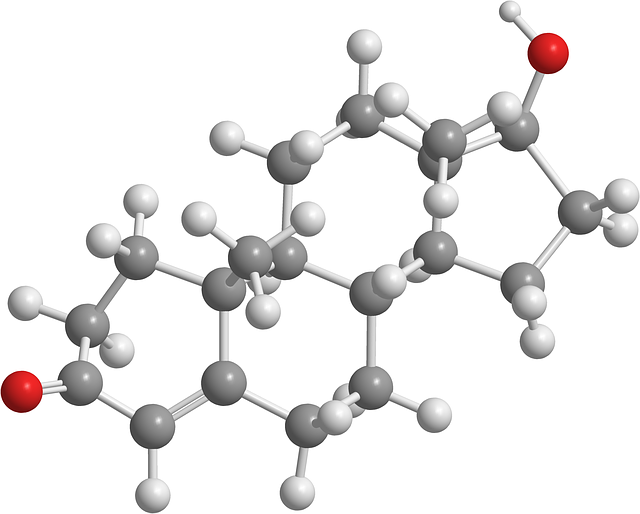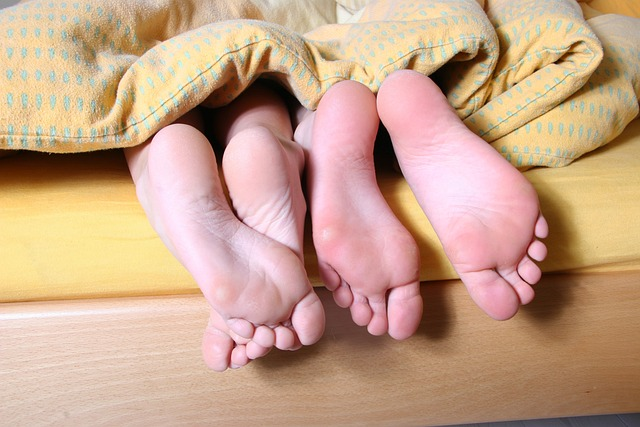
How ZMA Can Boost Your Immune System
Wondering how to boost your immune defences and fight against illness? Discover the science of ZMA and how it can help your immune system.

Testosterone levels can decline at a rate of more than 1% per year, and this can start as early as 30.
As you age and testosterone levels naturally decline, it can lead to a range of health issues that affect your appearance, life expectancy, mental health and so much more.
In today’s world, where people are already heavily medicated, addressing low testosterone through a healthy lifestyle is becoming increasingly important.

In the following sections, we’ll delve into seven ways low testosterone can impact your life, citing relevant scientific studies and statistics to prove these claims.
We’ll also explore the importance of maintaining healthy testosterone levels and how a combination of lifestyle changes and natural supplements, like StayPrime’s ZMAN+, can help you overcome these issues.
Stay tuned for a journey through the world of testosterone, the dangers of low testosterone, lifestyle habits, and their effects on your overall well-being.
If you’re a man aged 30+, you’re in the right place to learn about, arguably, the most important hormone in the male body.
Let’s get started…what does low testosterone do to a man?

Low testosterone can have a significant impact on your libido and sexual function. As your testosterone levels decline, you may experience:
A study published in the Journal of Clinical Endocrinology & Metabolism found that men between the ages of 40 and 70 with low testosterone were more likely to experience erectile dysfunction and decreased sexual desire compared to those with normal testosterone levels (Araujo et al., 2004).
This decline in sexual function can lead to frustration, relationship problems, and a decreased quality of life.
However, there is hope.
By adopting healthy lifestyle habits, such as regular exercise, a balanced diet, and getting enough sleep, you can help maintain your testosterone levels naturally.
In addition, incorporating natural supplements, like StayPrime’s testosterone booster ZMAN+, can support your body in producing more testosterone, helping you regain your libido and improve sexual function.

Low testosterone can lead to a significant drop in your energy levels and an increase in fatigue, making it difficult to stay active, focused, and productive.
A study in the International Journal of Clinical Practice revealed that men with low testosterone often reported fatigue, low energy levels, and a reduced ability to concentrate (Mulligan et al., 2006).
The reason behind this is that testosterone plays a vital role in energy metabolism and the production of red blood cells, which are responsible for transporting oxygen throughout the body.
When testosterone levels decline, your body’s ability to efficiently produce energy and deliver oxygen to your muscles and organs can be compromised, resulting in fatigue and low energy levels.
If you are starting fee less energised in your work, while exercising, have trouble motivating yourself to get tasks complete, or just generally feel more fatigued, your problem could be low testosterone levels.

If you ever feel that your muscles are becoming weaker or that you’re struggling to maintain your usual exercise routine, low testosterone levels could be a contributing factor.
Low testosterone can result in a loss of muscle mass and strength, making it challenging for you to maintain your physical fitness and perform some daily tasks.
This is because testosterone plays a crucial role in the process of muscle protein synthesis, which is essential for muscle growth and repair. When your testosterone levels are low, this process is hindered, leading to a decline in muscle mass and strength.
A study published in the American Journal of Physiology-Endocrinology and Metabolism found that low testosterone levels were associated with a decrease in muscle mass and strength in men (Sheffield-Moore et al., 2011).

Low testosterone can also contribute to an increase in body fat and weight gain, making it difficult for you to maintain healthy body composition.
We all know that as we get older, it can be harder to keep body fat off. A lowering level of testosterone is often the cause in men.
A study in the European Journal of Endocrinology found that men with low testosterone levels had a higher percentage of body fat and were more likely to be obese compared to those with normal testosterone levels (Allan et al., 2008).
The connection between low testosterone and weight gain can be attributed to the hormone’s role in regulating fat metabolism. When testosterone levels decline, your body may become less efficient at breaking down and using stored fat for energy, leading to an increase in body fat and weight gain.
If you ever notice unexplained weight gain or difficulty losing weight despite your efforts, low testosterone levels could be playing a role in these challenges.

Low testosterone levels can have a significant impact on your mental health, potentially leading to mood swings and depression. If you’ve been experiencing unexplained mood changes or feelings of sadness, low testosterone could be a contributing factor.
Testosterone has been found to influence mood and emotional regulation in men. A study published in Biological Psychiatry demonstrated a link between low testosterone levels and an increased risk of depression in middle-aged and older men (Shores et al., 2004).
The underlying cause for this connection is that testosterone plays a role in the regulation of neurotransmitters, such as serotonin and dopamine, which are critical for maintaining a stable mood and overall mental well-being.
When testosterone levels are low, this regulatory function can be disrupted, leading to mood swings and an increased risk of depression.
Low testosterone can also cause affect your mental health, if any of the other factors in this list make you feel self-conscious or lacking in confidence.
For example, if you’re overweight, short on energy and suffering with sexual health problems, this can make any man feel very low.

Cognitive decline and memory problems are other potential consequences of low testosterone levels. You might find it difficult to concentrate, recall information, or solve problems as effectively as before.
Research published in the Journal of Clinical Endocrinology & Metabolism found that men with low testosterone levels were more likely to experience cognitive decline and poorer memory performance compared to those with normal levels (Cherrier et al., 2001).
The reason for this association is that testosterone has a role in maintaining the health and function of brain cells. As testosterone levels decline, this protective effect may weaken, leading to cognitive decline and memory issues.
If you’ve noticed a decline in your cognitive abilities or are having trouble remembering things, it’s possible that low testosterone levels are one of the key underlying causes.

Low testosterone levels can also have a negative impact on your bone health, leading to a decrease in bone density and an increased risk of osteoporosis.
If you’ve experienced unexplained bone pain or fractures, it could be a sign that low testosterone is affecting your bone health.
A study published in the Journal of Clinical Endocrinology & Metabolism showed that men with low testosterone levels had significantly lower bone mineral density compared to men with normal testosterone levels (Snyder et al., 2000).
The connection between low testosterone and bone density loss can be attributed to testosterone’s role in maintaining bone strength and turnover. Testosterone helps regulate the balance between bone formation and resorption, which is crucial for maintaining healthy bones. When testosterone levels are low, this balance can be disrupted, leading to a decrease in bone density and an increased risk of fractures and osteoporosis.
Maintaining healthy testosterone levels is vital for preserving bone health and reducing the risk of osteoporosis as you age.

If you’re concerned about the impact of low testosterone on your life, there are several steps you can take to naturally boost your testosterone levels:
By adopting these healthy lifestyle habits and incorporating StayPrime’s ZMAN+, you can work towards maintaining optimal testosterone levels and reducing the potential negative effects of low testosterone on your life.
The right habits will change your life, the wrong ones will ruin it.
Going to the gym, taking a supplement, getting enough sleep, eating the right foods, on a daily basis will have a positive impact on your testosterone levels.

Taking action to address low testosterone levels is essential, and there’s no better time to start than right now.
Every day without taking action is another day when you could lose another 1% of your testosterone (Source: . The good news is that it’s possible to reverse the ageing process and the loss of testosterone.
By making simple yet effective changes, you can encourage more production and increase your testosterone levels.
Here are some simple and effective steps to get started:
Taking these steps is easier than you might think, and they can have a significant impact on your overall well-being. Just imagine starting your day with a quick workout, followed by a capsule with your breakfast – simple habits that can make a world of difference.
The key to success is to take action as soon as possible and make these positive changes a part of your daily routine.
By doing so, you’ll not only maintain healthy testosterone levels but also work towards reversing the effects of ageing and improving your quality of life.
Remember, it’s all about habits, and it’s never too late to take the first steps towards a healthier, happier you.

Low testosterone levels can have a profound impact on various aspects of your life, including your physical appearance, strength, mental well-being, and overall health.
The seven major problems discussed throughout this blog highlight the importance of addressing low testosterone levels and taking action to reverse their effects, and there are more that we could have listed!
Fortunately, these issues can be overcome by adopting healthy habits that support your body’s natural testosterone production. By incorporating simple yet effective strategies, such as using a testosterone booster, exercising regularly, maintaining a balanced diet, getting enough sleep, and managing stress, you can take control of your health and work towards improving your quality of life.
It’s crucial to remember that the key to success lies in taking action as soon as possible and making these positive changes a part of your daily routine.
By doing so, you’ll not only maintain healthy testosterone levels but also work towards reversing the effects of ageing and enhancing your overall well-being.
Don’t let low testosterone levels dictate your life – start building habits today that will positively impact your health and happiness for years to come.
Are you ready to change your life? Boost testosterone levels without dramatic therapies or surgeries?


Wondering how to boost your immune defences and fight against illness? Discover the science of ZMA and how it can help your immune system.

Learn how ZMA can transform your muscle recovery and athletic performance, allowing you to reach your health goals

Studies have shown that testosterone levels are falling. Read this to find out why and what can be done to fix it.

Discover how Vitamin B6 reduces fatigue through energy metabolism, with key facts and intake recommendations.

Complete the form NOW to receive the free ebook and take on the challenge.